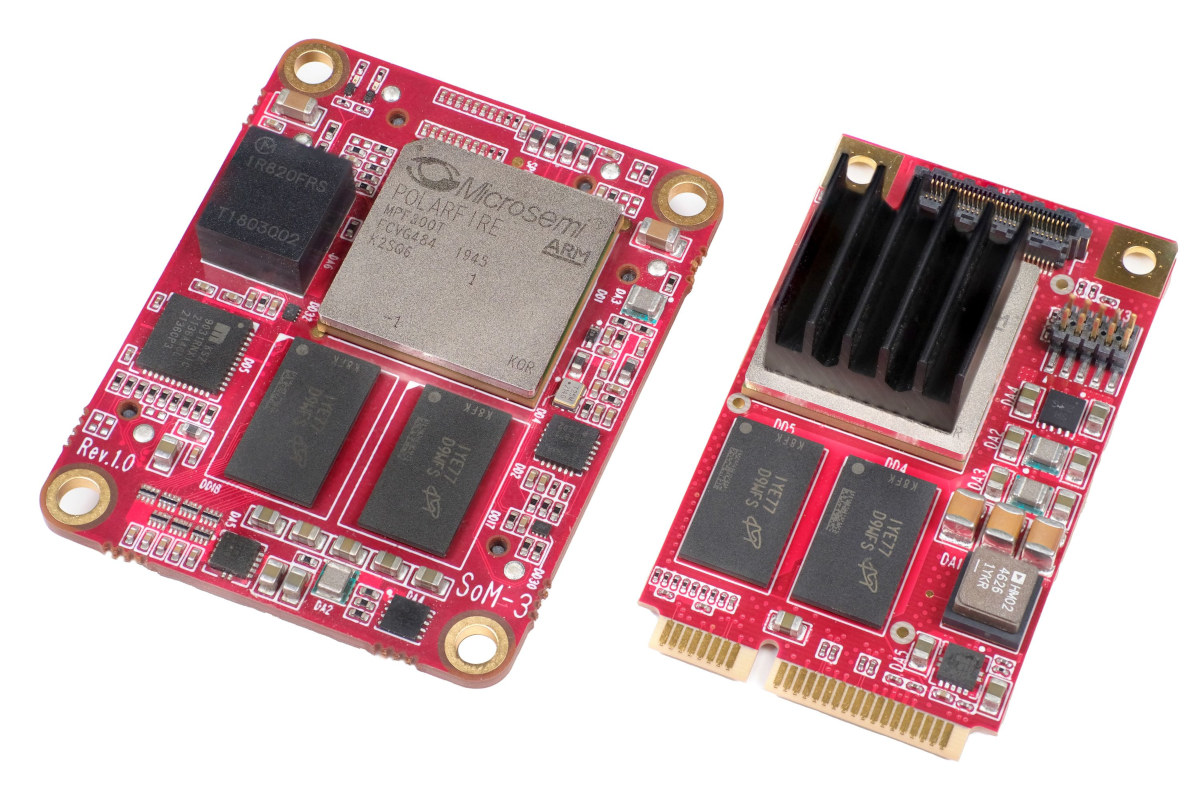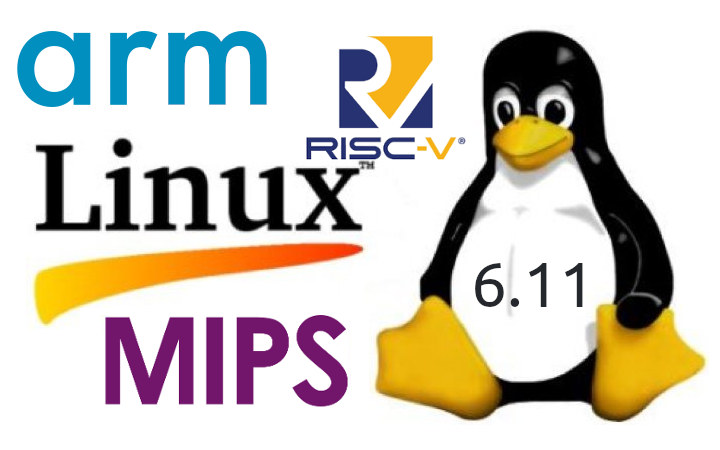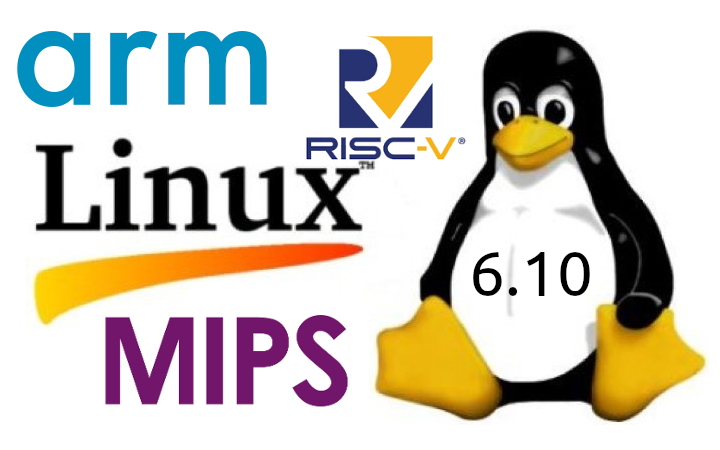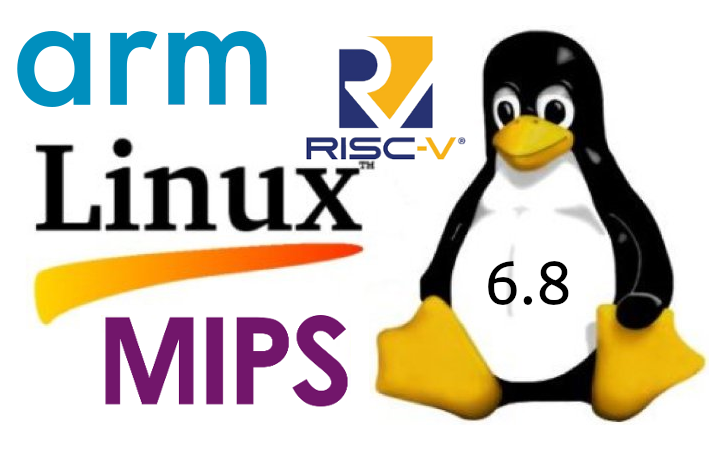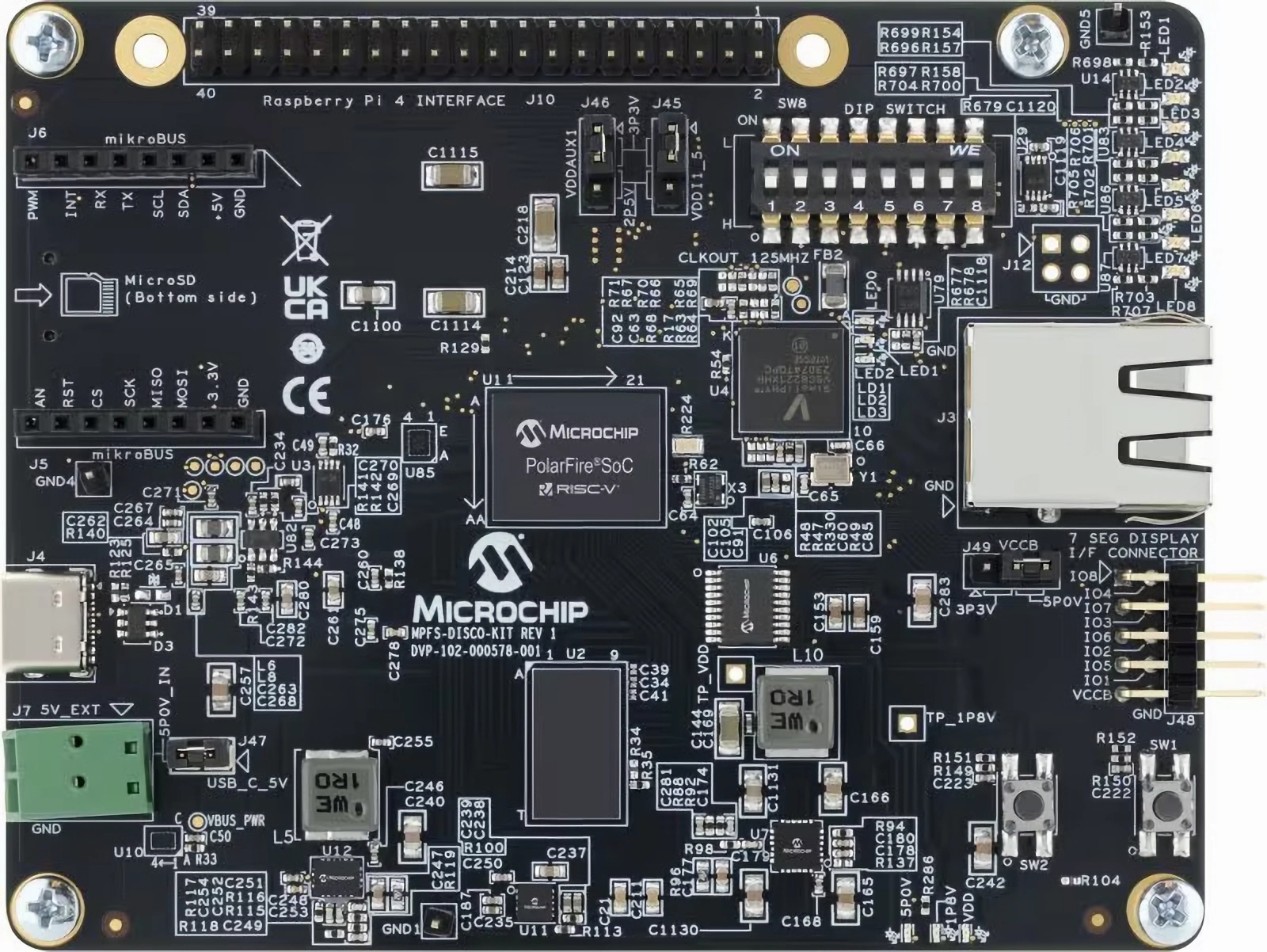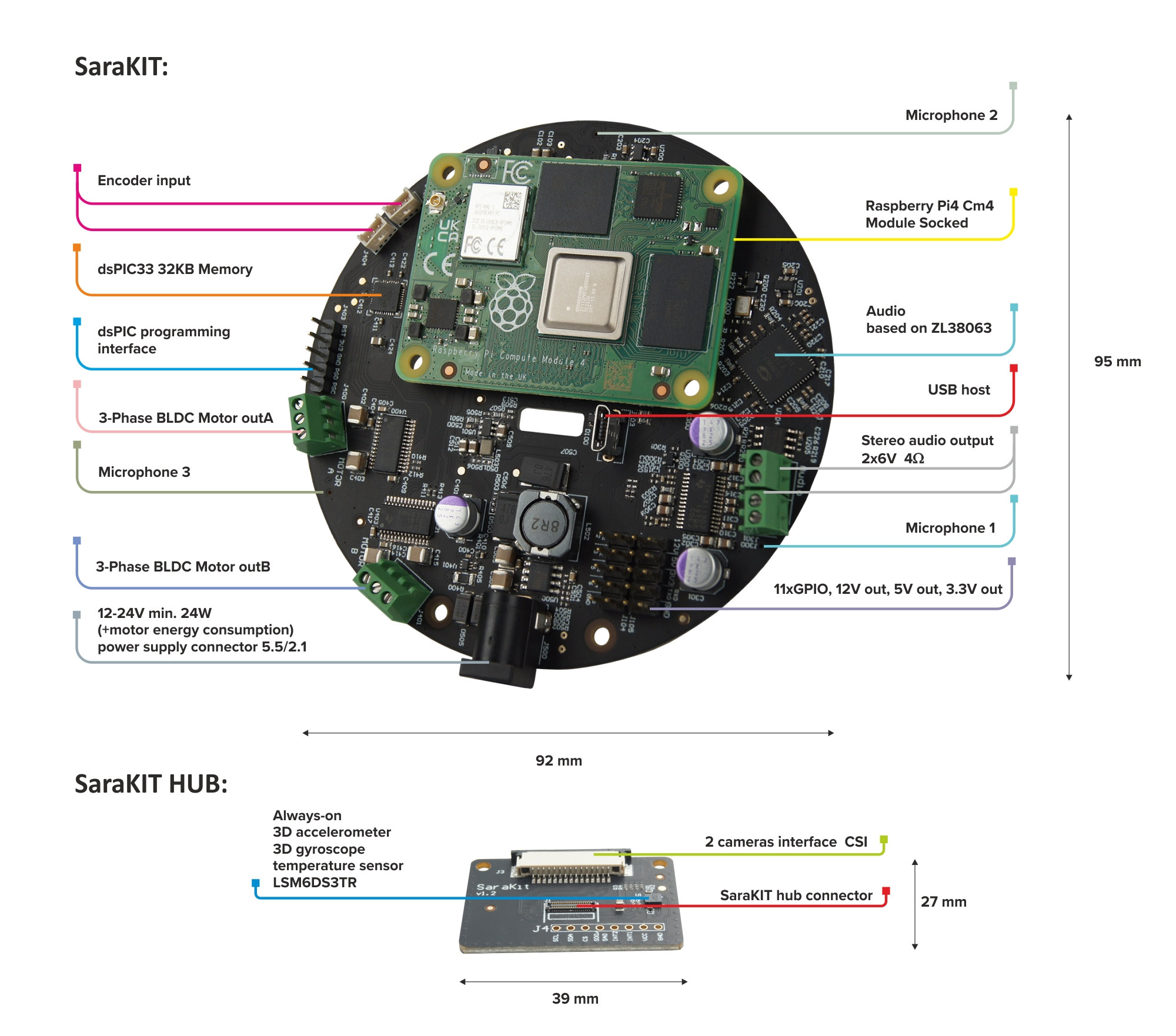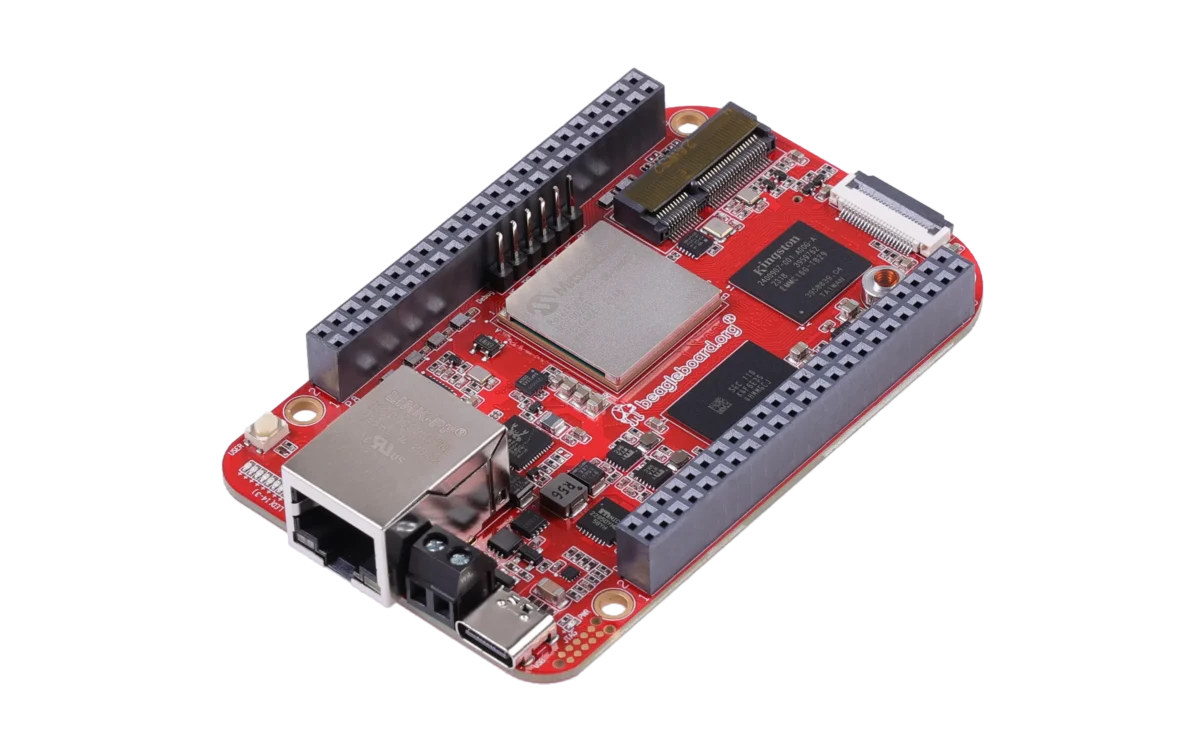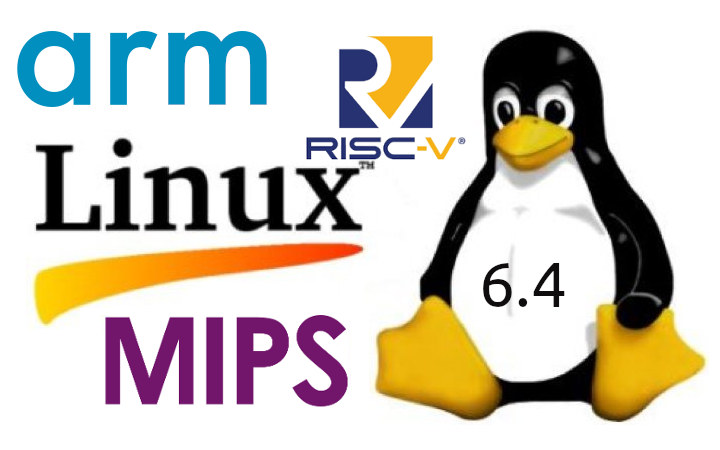TinyBeast FPGA is a compact module based on Microchip PolarFire MPF100T or MPF300T FPGA with up to 300K logic elements and a hard PCIe interface that is suitable for automation, measurement, and robotics applications. Two versions of the module are available: the TinyBeast FPGA P mini PCIe module designed for integration with embedded systems, and the TinyBeast FPGA S with B2B connectors designed to be connected to a carrier board. TinyBeast FPGA P TinyBeast FPGA P specifications: FPGA – Microchip PolarFire FPGA TinyBest FPGA P-300 – MPF300T-1FCVG484E FPGA with 300K LE, 10.6 Mbit embedded RAM, 924 DSP blocks TinyBest FPGA P-100 – 100K LE, 5.2 Mbit embedded RAM, 288 DSP blocks System Memory – 4 GB DDR4 memory Storage – SPI flash Host interface – PCIe x1 Gen2 as EP via mini PCIe edge connector Expansion – Samtec SS4-30-3.00-L-D-K I/O connector for GPIOs and up to 12.7 Gbps transceivers Debugging […]
Linux 6.11 Release – Notable changes, Arm, RISC-V and MIPS architectures
Linux 6.11 is out with Linus Torvalds’ announcement on the Linux kernel mailing list (LKML): I’m once again on the road and not in my normal timezone, but it’s Sunday afternoon here in Vienna, and 6.11 is out. The last week was actually pretty quiet and calm, which is nice to see. The shortlog is below for anybody who wants to look at the details, but it really isn’t very many patches, and the patches are all pretty small. Nothing in particular stands out – the biggest patch in here is for Hyper-V Confidential Computing documentation. Anyway, with this, the merge window will obviously open tomorrow, and I already have 40+ pull requests pending. That said, exactly _because_ I’m on the road, it will probably be a fairly slow start to the merge window, since not only am I on my laptop, there’s OSS Europe starting tomorrow and then the […]
Linux 6.10 Release – Notable changes, Arm, RISC-V, and MIPS architectures
Linux Torvalds has announced the release of Linux 6.10 on LKML: So the final week was perhaps not quote as quiet as the preceding ones, which I don’t love – but it also wasn’t noisy enough to warrant an extra rc. And much of the noise this last week was bcachefs again (with netfs a close second), so it was all pretty compartmentalized. In fact, about a third of the patch for the last week was filesystem-related (there were also some btrfs latency fixes and other noise), which is unusual, but none of it looks particularly scary. Another third was drivers, and the rest is “random”. Anyway, this obviously means that the merge window for 6.11 opens up tomorrow. Let’s see how that goes, with much of Europe probably making ready for summer vacation. And the shortlog below is – as always – just the last week, not some kind […]
Linux 6.8 release – Notable changes, Arm, RISC-V, and MIPS architectures
Linus Torvalds has just announced the release of Linux 6.8 on the Linux kernel mailing list: So it took a bit longer for the commit counts to come down this release than I tend to prefer, but a lot of that seemed to be about various selftest updates (networking in particular) rather than any actual real sign of problems. And the last two weeks have been pretty quiet, so I feel there’s no real reason to delay 6.8. We always have some straggling work, and we’ll end up having some of it pushed to stable rather than hold up the new code. Nothing worrisome enough to keep the regular release schedule from happening. As usual, the shortlog below is just for the last week since rc7, the overall changes in 6.8 are obviously much much bigger. This is not the historically big release that 6.7 was – we seem to […]
Microchip announces the PolarFire SoC Discovery Kit, a low-cost devkit for Linux and real-time applications
The SoC Discovery Kit is the latest addition to Microchip’s list of development kits for the PolarFire series. The series is the first SoC FPGA family powered by a deterministic, coherent RISC-V CPU cluster. They provide low power consumption, thermal efficiency, and defense-grade security for smart, networked systems. They also support a deterministic L2 memory system for Linux and real-time applications. Microchip launched the Icicle Kit for the PolarFire SoC in 2020 and it was followed by the Video and Imaging Kit which was intended for mid-bandwidth imaging and video applications. Now, Microchip has announced the Discovery Kit which is billed as a low-cost alternative to the Icicle. The Discovery Kit retains the full range of features needed for testing concepts quickly, developing firmware applications, and programming/debugging user code. According to Microchip, the kit will bring “a low-cost RISC-V and FPGA development for learning and rapid innovation” to new and […]
SaraKIT – An Raspberry Pi CM4 board with ChatGPT-based voice control, motor control, and plenty of sensors (Crowdfunding)
SaraKIT is a carrier board for the Raspberry Pi CM4 system-on-module with BLDC motor controllers and a range of sensors for robotics, support for ChatGPT-based voice control through three microphones and a ZL38063 audio chip, and two MIPI CSI connectors for cameras. The versatile board can be used for voice-controlled products, robots, home automation systems, and interfacing with smart home or office devices. The company also developed various demos such as a Smartphone-controlled LEGO RC car, a self-balancing LEGO robot, a pan-and-tilt camera, various AI demos using MediaPipe such as face tracking and object detection, as well as audio demos using ChatGPT, Alexa, and/or Google Home. SaraKIT specifications: Support system-on-modules – Raspberry Pi Compute Module 4 (CM4) with future CM5 compatibility. MCU – Microchip dsPIC33 16-bit microcontroller with 32 KB SRAM for motor control and LSM6DS3TR sensor Audio Microchip ZL38063 (previously MicroSemi) audio processor for microphone arrays. 3x Knowles SPH0655 […]
$150 BeagleV-Fire SBC features Microchip PolarFire RISC-V SoC FPGA, supports BeagleBone capes
BeagleV-Fire is a new single board computer powered by Microchip PolarFire MPFS025T penta-core RISC-V SoC FPGA that follows the BeagleBone Black form factor for compatibility with BeagleBone capes expansion boards. Microchip PolarFire RISC-V SoC FPGA was one of the first Linux-compatible RISC-V SoCs and was found in pricey boards such as the Icicle and TySOM-M-MPFS250 development boards. I also got an Icicle board for review, and while getting started with the Yocto Linux BSP was OK, I really struggled with the FPGA part including just installing Libero SoC in Ubuntu and going through the license, and even I gave up trying to run a bitstream sample on the board due to a lack of time. The BeagleV-Fire makes it much cheaper to try out the PolarFire and hopefully makes it easier to get started with both Linux and the FPGA fabric through easier-to-understand documentation and code samples. BeagleFire-V specifications: SoC […]
Linux 6.4 release – Main changes, Arm, RISC-V and MIPS architectures
Linux 6.4 has just been released by Linus Torvalds on the Linux Kernel Mailing List (LKML): Hmm. Final week of 6.4 is done, and we’ve mainly got some netfilter fixes, some mm reverts, and a few tracing updates. There’s random small changes elsewhere: the usual architecture noise, a number of selftest updates, some filesystem fixes (btrfs, ksmb), etc. Most of the stuff in my mailbox the last week has been about upcoming things for 6.5, and I already have 15 pull requests pending. I appreciate all you proactive people. But that’s for tomorrow. Today we’re all busy build-testing the newest kernel release, and checking that it’s all good. Right? Released around two months ago, Linux 6.3 brought us AMD’s “automatic IBRS” Spectre defense mechanism, additional progress on the Rust front with User-mode Linux support (on x86-64 systems only), the NFS filesystem (both the client and server sides) gained support for […]


